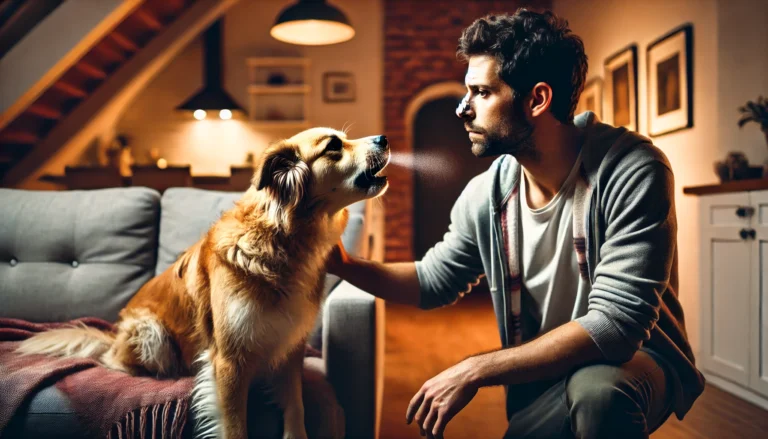kennel Cough Symptoms in dogs? Causes and Treatment

Know about kennel Cough Symptoms and treatment
When your dog starts coughing, it can raise immediate concerns about their health. kennel cough symptoms in dogs can arise from simple throat irritations to more serious conditions such as infections or chronic diseases. This extensive guide explores why dogs cough, common symptoms, potential treatments, and frequently asked questions about coughing in dogs, such as its relation to conditions like kennel cough and strategies for care and prevention.

Understanding the Canine Cough
Coughing is a common reflex action in dogs that helps clear their throat or airways of mucus, irritants, or foreign particles. However, if your dog is coughing frequently or exhibits a hacking cough, it might be a sign of a more serious health issue and these are kennel cough symptoms.
Common Reasons for Coughing in Dogs
- Kennel Cough: One of the most frequent causes of coughing in dogs, kennel cough is highly contagious and characterized by a strong, hacking cough that many describe as sounding like something is stuck in the dog’s throat.
- Canine Influenza: Dogs suffering from this virus often display symptoms of coughing, sneezing, and nasal discharge.
- Heart Disease: Coughing can be a symptom of heart disease in dogs, especially if it occurs mostly at night or during periods of excitement.
- Allergies: Dogs can cough due to allergic reactions to particles like pollen, dust, or smoke.
- Parasites: Lungworms and heartworms are parasites that can cause severe coughing.
- Chronic Bronchitis: Chronic inflammation of the airways leads to a persistent cough that lasts for months.
- Foreign Bodies: If a dog inhales something like a small toy or piece of food, it can trigger a bout of coughing.
- Tracheal Collapse: Common in smaller breeds, this condition leads to a dry, honking cough.
- Lung Tumors: Though less common, coughing can also be a sign of lung tumors or cancers in dogs.
Diagnosing the Cause of Coughing
Veterinary diagnosis is crucial for treating coughing and may involve:
- Physical Exams: Listening to the lungs and checking for signs of respiratory distress.
- X-rays or Ultrasounds: Imaging tests to view the lungs and heart.
- Blood Tests: To check for infections, heartworms, or other underlying conditions.
- Endoscopy: A closer look into the airways to check for foreign bodies or tumors.
Treating Coughing in Dogs
The treatment for a coughing dog greatly depends on the underlying cause:
- Medications: Antibiotics for bacterial infections like kennel cough, or anti-parasitics for lungworms.
- Cough Suppressants: For dry coughing, if recommended by your vet.
- Surgery: In severe cases, such as for removing foreign objects or tumors.
- Lifestyle Changes: For dogs with chronic bronchitis, reducing exposure to dust and smoke can help.
Kennel Cough and Its Management
kennel cough symptoms and treatment involves:
- Rest: Keeping your dog in a well-humidified area and avoiding exposure to other dogs.
- Medication: Cough suppressants and antibiotics if a bacterial infection is present.
- Vaccination: Preventative vaccines are available for some of the pathogens that cause kennel cough.
Home Remedies for Dog Coughing
Some home remedies for kennel cough symptoms include:
- Honey: Can soothe the throat and reduce coughing.
- Steam Therapy: Using a humidifier can help loosen mucus and relieve coughing.
- Proper Hydration: Ensuring your dog drinks enough water helps keep the throat moist and reduces coughing.
When to See a Vet
It’s important to consult a vet if:
- The coughing is persistent or gets worse.
- It’s accompanied by other symptoms like a runny nose, eyes, or if your dog is coughing up blood.
- Your dog seems lethargic, loses appetite, or has difficulty breathing.
Preventative Measures of kennel cough symptoms
- Vaccinations: Regular vaccinations can prevent many infectious causes of coughing.
- Heartworm Prevention: Monthly preventatives can stop heartworm disease, a common cause of coughing.
- Environmental Management: Keeping your home free from dust, smoke, and chemical irritants can help reduce coughing.
Title
Scottish Fold Cat Breed Health and Care, known for their unique folded ears and affectionate nature, have become a beloved choice among cat enthusiasts worldwide.
Conclusion kennel cough symptoms
Coughing in dogs is a symptom that should not be ignored. While sometimes it may be caused by a minor issue, in many cases, it signals something more serious. Understanding the various causes and appropriate responses can help ensure that your dog receives the best possible care. Always consult a veterinarian if you are concerned about your dog’s health to ensure accurate diagnosis and treatment.






